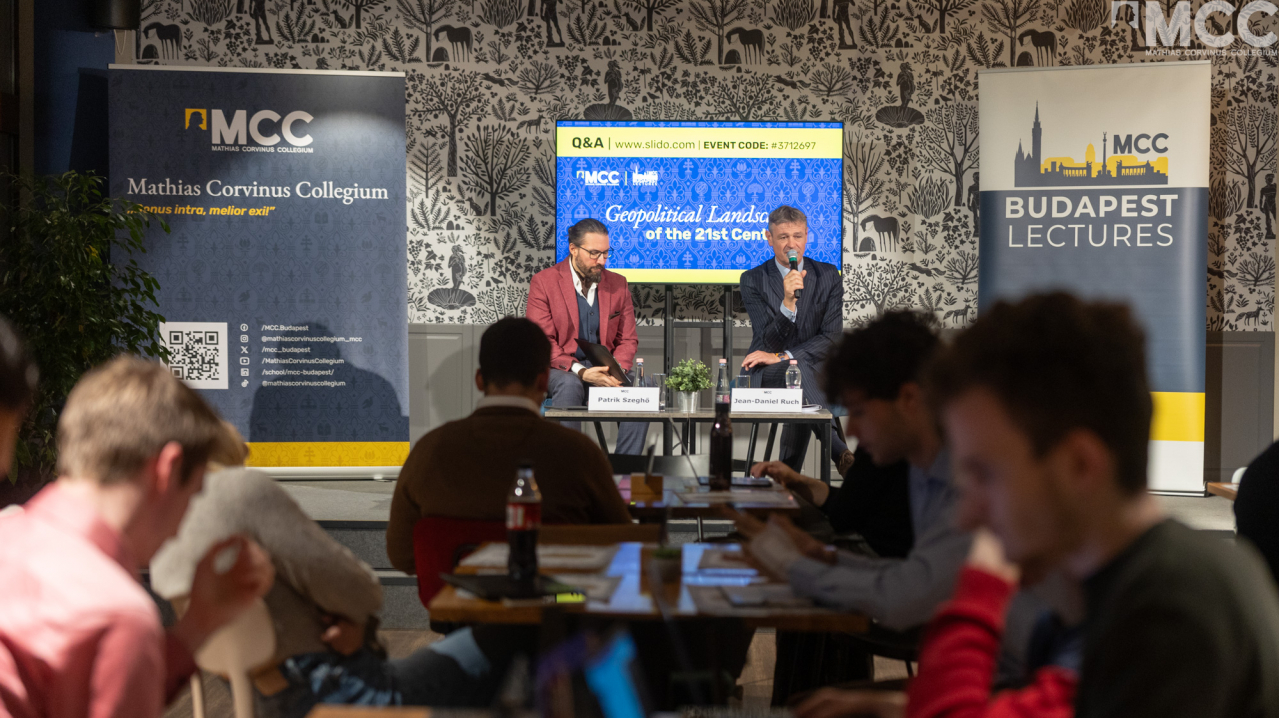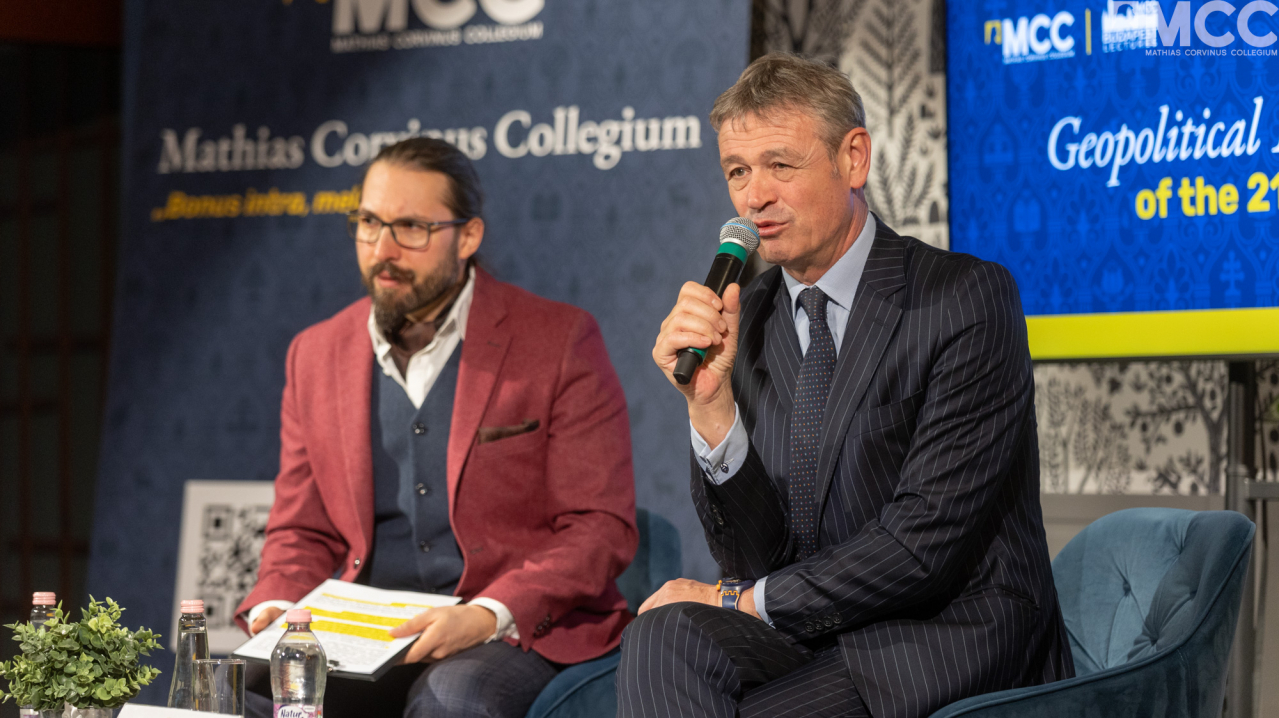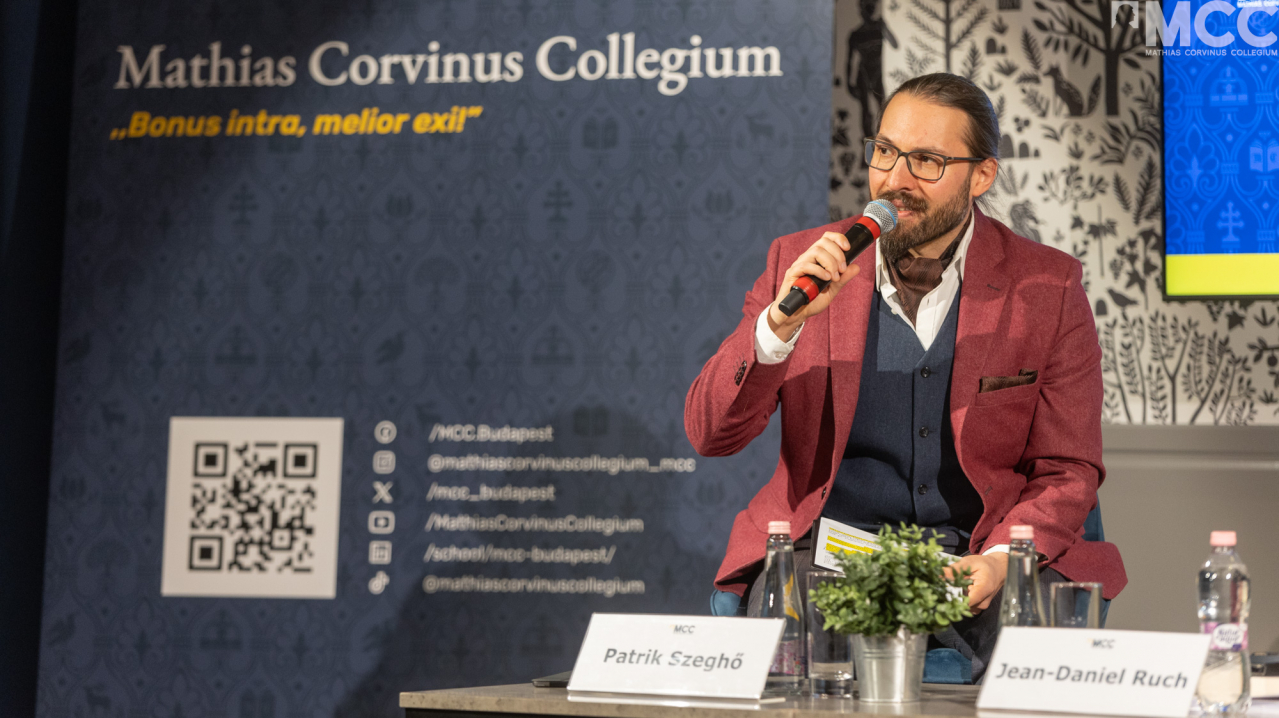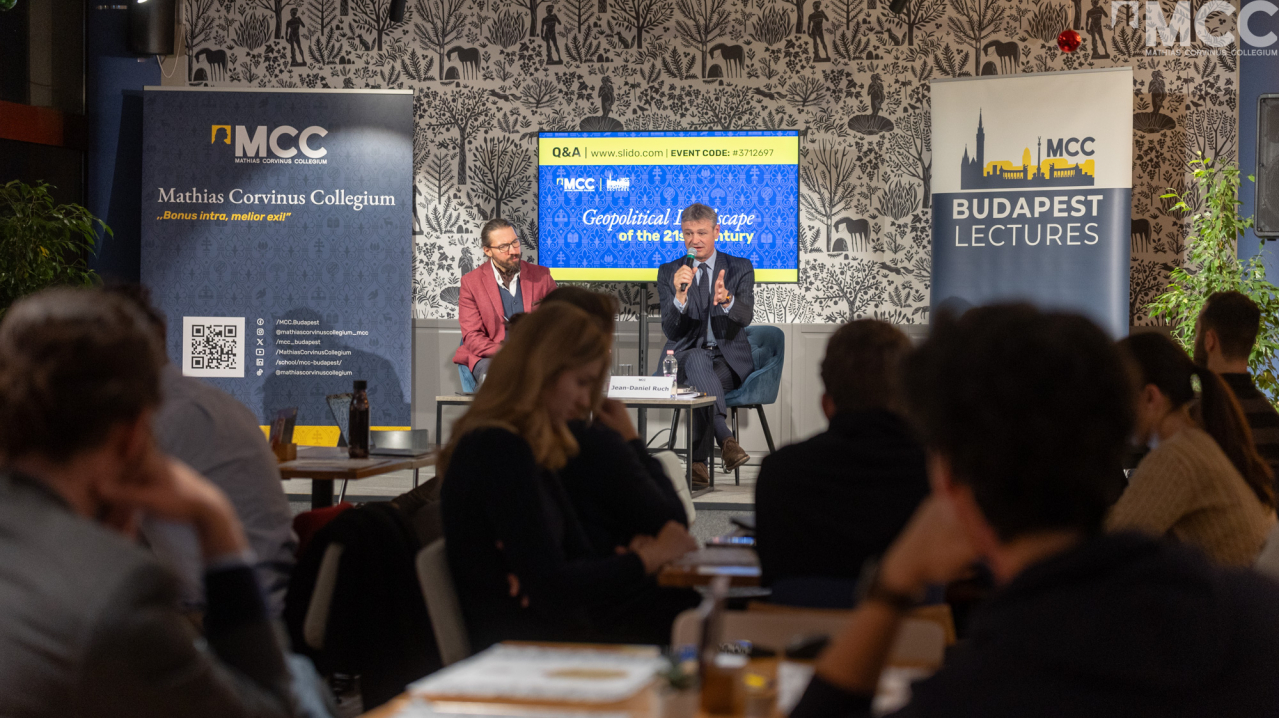Reading time: 2 minutes
This week, we had the honor of hosting Jean-Daniel Ruch, former Swiss diplomat. Drawing from his extensive experience, he offered a thought-provoking analysis of the global geopolitical landscape, highlighting historical turning points, current challenges, and the evolving roles of nations like Hungary and Switzerland.
According to Ruch, the UN Security Council, once a cornerstone of global stability, is now facing challenges to its legitimacy and effectiveness. Ruch raised critical questions about the emergence of new power structures and the potential for these to evolve into geopolitical blocs. He also discussed the US-China rivalry, framing it as an economic competition over natural resources and trade dominance. Ruch emphasized the importance of Europe avoiding entanglement in conflicts between these superpowers, given its reliance on free trade and interconnected supply chains.
Ruch highlighted several pressing global challenges, including the need to establish a modus vivendi with Russia despite ongoing EU sanctions. He also pointed to the demographic imbalances in the Mediterranean, which are driving migration issues, and stressed the urgency of addressing climate change through collective international action.
On Switzerland’s neutrality, Ruch noted that while the country has refrained from providing weapons to either side in the Russia-Ukraine conflict, its adoption of EU sanctions against Russia has reshaped perceptions of its impartiality. He suggested that Switzerland could look to Hungary’s efforts as a potential model for acting as a bridge-builder between nations.
Finally, Ruch stressed the importance of stronger collaboration among smaller nations. He highlighted Hungary’s potential role in fostering partnerships and emphasized the value of collective efforts to address global challenges.




